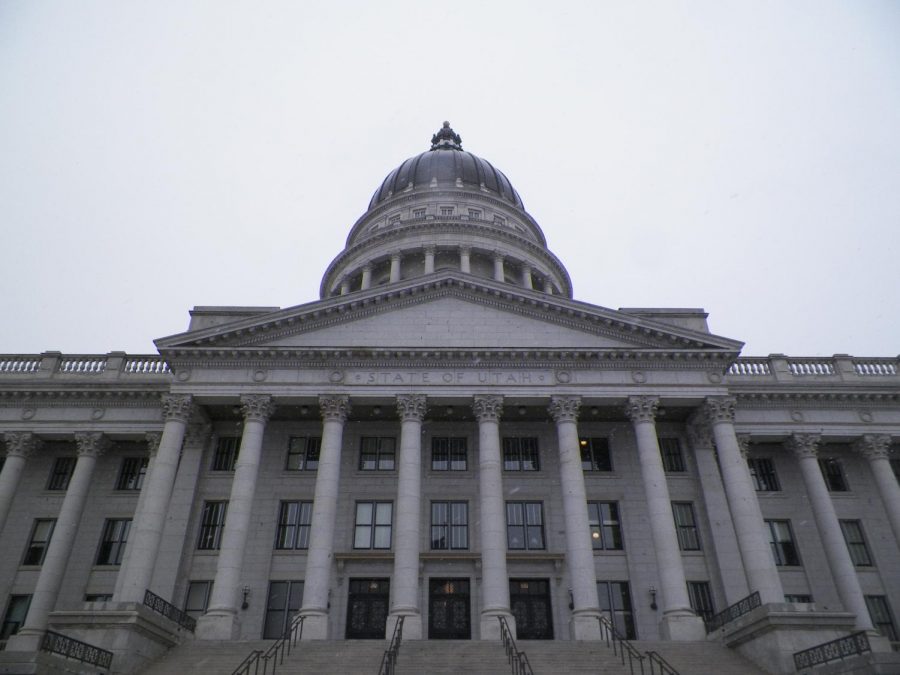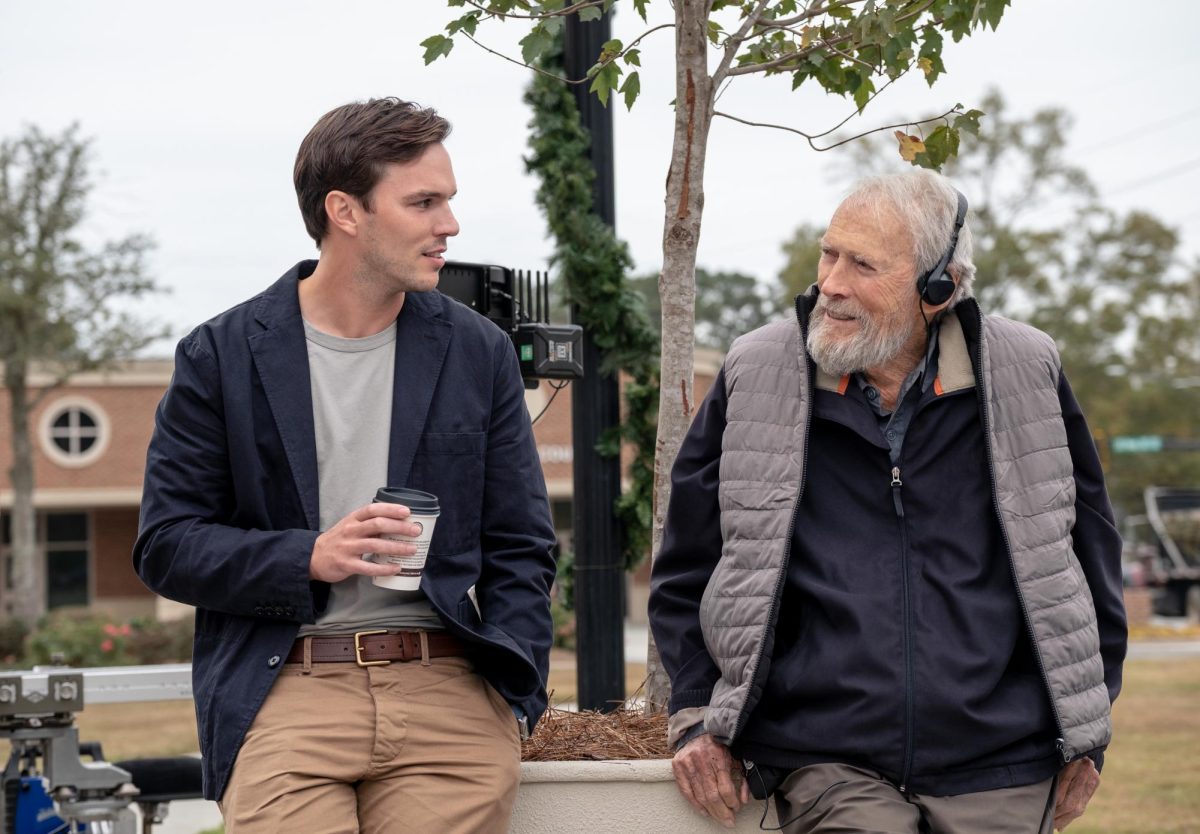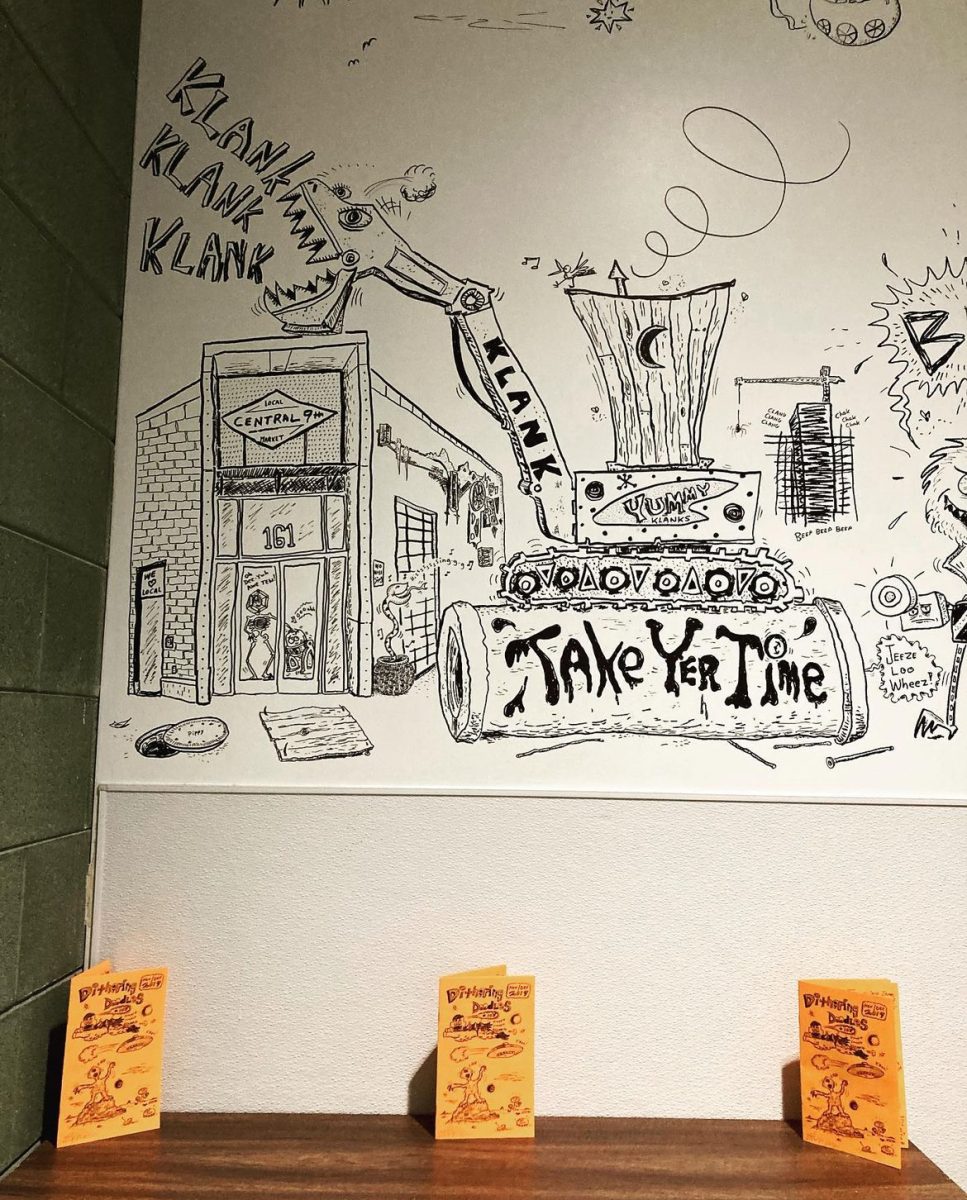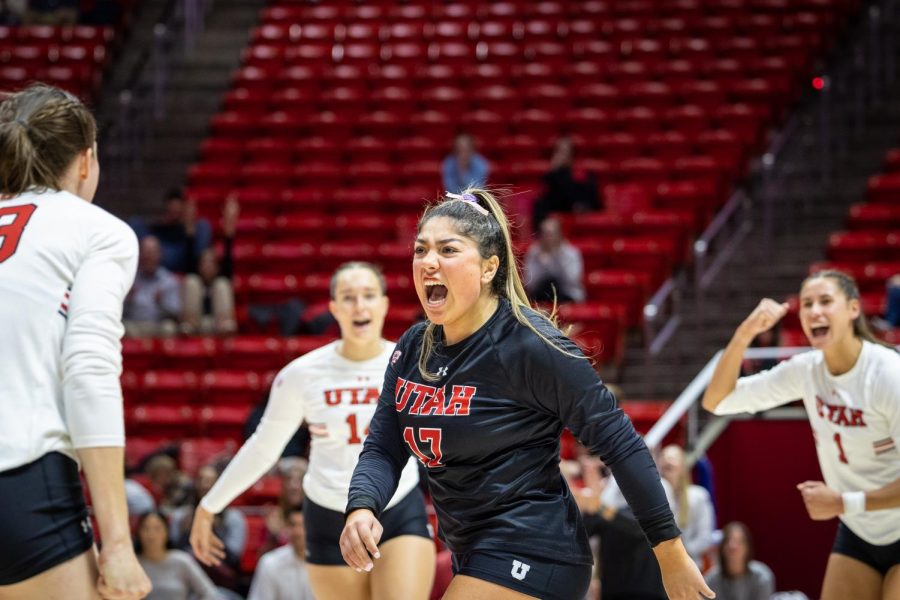Hibben: Why Do Utah Lawmakers Think the Pandemic is Over?
April 1, 2021
Across the nation, many red states have started to end mask mandates, responding to the frustration of so-called “anti-maskers” that the government imposing mask mandates is a step too far. In Utah, Gov. Spencer Cox is soon expected to sign H.B. 294, Pandemic Emergency Powers Amendment, which will end his authority to create a mask mandate. Assuming Utah hits certain vaccine distribution rates, positivity rates, and other criteria, Utah will end its mask mandate on April 10, though schools and large gatherings will still be required to have masks. In addition, Cox has signaled he will sign S.B. 195, which restricts his powers and prevents local elected officials from issuing emergency orders (like mask mandates) for longer than 30 days. This will prevent local leaders from protecting their counties from COVID-19 even as most counties still face high transmission rates. The new law will take away powers from localities and small businesses and prioritize the state legislature’s wants over individual counties’ needs.
The Utah Legislature has no place in forcing the governor to make these decisions for the entire state, and should not take away the executive emergency powers of local leaders simply because masks are an inconvenience. Masks are necessary even after vaccinations, since we are unsure of the full extent of vaccines’ effectiveness against new strains of the virus or in preventing its transmission.
Currently, 11% of Utahns are now fully vaccinated — nowhere near the rates at which experts suggest restrictions can be loosened. Most experts agree that 70% of the population must be vaccinated or have had the virus to approach herd immunity. Even with the 25% of Utah residents have contracted the virus, our vaccination numbers bring us nowhere near that 70% immunity rate. And even though all Utahns 16 and older are allowed to be vaccinated, technical vaccine accessibility doesn’t mean a needle in the arm. I tried to schedule an appointment for vaccination and was shocked to find they were booked out for months. And, importantly, vaccine appointments are made mostly through the phone or online, unfairly affecting those who struggle with digital literacy, speaking English and computer access. Appointments are also difficult to find, and most are offered during the day when people are working. Low-income workers might not have the privilege to take off work. This also means that at-risk populations may not be able to get the vaccine before others even with priority access dates.
We also don’t know how long vaccines last in fighting off COVID-19. The CDC states that there is no information on how long vaccines last, so we should not abandon our masks based on limited knowledge of future efficacy. Finally, we don’t know how effective the vaccines are against new variants of the coronavirus, which are more contagious. These variants are constantly changing and we can’t predict how safe we will be. Wearing a mask is one step we can all take to protect ourselves and each other, since they are proven to be effective in stopping the spread of the virus. While social distancing is another important measure, it’s difficult to enforce, and many still find it hard to remember or follow even a year into the pandemic.
Given all this, the irony of Cox’s move to sign these bills is astounding. Anti-mask protests have revolved around the premise that the government is intruding on individual liberties. But in Utah, the state making indiscriminate decisions and taking away power from local authorities is exactly what anti-maskers have spoken against. Only six counties in Utah (out of 29) have “low” transmission rates. So why are the legislature and the governor forcing localities to give away their authority to choose? S.B. 195 prevents local executive branches from making emergency decisions without legislative approval, meaning that if cases go back up and Utahns’ safety is at risk, we will all have to wait for the legislature to make a decision to protect us. Some leaders, like Salt Lake City Mayor Jenny Wilson, say they might implement mask mandates in their counties, but this bill will take away that power after 30 days. While ending mask mandates might seem like a relief, the infringement on local powers is another concerning consequence of this action.
Masks are definitely annoying, but annoyance isn’t a reason to lose lives and override local authority. Thousands of lives have been saved by simple pieces of cloth. Cox and the Utah State Legislature should not make blanket decisions for the entire state as if they possess a crystal ball. We don’t know the future of the virus. It’s simply better to be safe than sorry.









John Hedberg • Apr 3, 2021 at 1:03 pm
President Biden’s CDC Director, Rochelle Walensky, announced on MSNBC Monday that “We can kind of almost see the end,” Walensky told Maddow. “We’re vaccinating so very fast, our data from the CDC today suggests, you know, that vaccinated people do not carry the virus, don’t get sick, and that it’s not just in the clinical trials but it’s also in real world data.”
“Pfizer says vaccine protection covers COVID-19 variants and lasts at least six months” (headline):
https://www.washingtonexaminer.com/news/pfizer-vaccine-protection-lasts-at-least-six-months?fbclid=IwAR11psd-W2FJPRkNTv_dT9UPdXp90gqqv4ETj1KArkGFBwUEuHE-zmJaWkc
Utah’s 2021 population is estimated at 3.34 million people. According to the Utah Coronavirus website on 03 April, 558,700 had been fully vaccinated (.5587 million / 3.34 million = 16.7%). This means 1 out of every 6 Utahns has been fully vaccinated, which accounts for more than 70% of people age 70+, as well as most people 16+ who have CDC-defined underlying health conditions. Since the goal is to prevent infection by those vulnerable to hospitalization or death, and hospitalizations are down nearly 75%, the emergency portion of the pandemic is only a few days away from being over. For the rest of us, COVID is about as dangerous as the seasonal flu, and for the very young, even less dangerous, so everyone else can be vaccinated with little risk over the next 3 months.
https://coronavirus.utah.gov/case-counts/
Furthermore, the first dose of m-RNA vaccines are proving to be extremely effective after about 15 days, and 965,521 Utahns have received at least one dose, which means 28.9% of all Utahns (including the most vulnerable people) will already have significant protection by the April 10th end of the state mask mandate.
https://fox8.com/news/how-effective-is-the-first-shot-of-the-pfizer-or-moderna-vaccine/?fbclid=IwAR3hhNZWaRPqenRVetLl5hbG7v2YJPWsibRp0hYOQT_itl4T3mxH18F6RJU
Finally, your question about who gave the legislature the right to decide to end the mask mandate was kind of amusing – no offense – coming from a college student. The state constitution vests that power with the legislature elected by the people of Utah in an open democratic process. I know democracy is falling out of fashion in many parts of the world, but the people’s chosen representatives voted to end the mask mandate on behalf of their constituents. Since there is no current data (per Rochelle Walensky) that indicates people who’ve been vaccinated can spread the disease, and almost all of those vulnerable to hospitalization and death have already been fully vaccinated, can you give a reason why we should continue a state mask mandate? Personally, I’m going to continue wearing my mask until June 1st, just so I don’t panic anyone who’s not conversant with the science, but long before Mother’s Day, there won’t be any scientific reason for even a county mandate to continue, so the 30-day limit seems almost perfectly crafted to match scientific conditions here in Utah.
With Love,
J Hedberg
Mitchell Mueller • Apr 2, 2021 at 12:07 pm
This is an excellent overview of the sheer madness that we’re reckoning with over the next few months of the pandemic. By my guess, social distancing efforts (which are already sorely lacking) will be thrown out immediately as soon as the general populace similarly stops caring about masks.
I worked a retail job through the first half of last year, and I can attest that nearly all of the clientele neglected any kind of mask usage until it was literally enshrined in the law. Now that some are getting vaccinated, the unwarranted confidence that’s been leading to infection spikes around the nation is certain to be emulated by both Utah’s vaccinated and non-vaccinated alike.
Personally, I’m deeply uncomfortable knowing that, as someone who works a full-time job and can’t find another appointment after my work shift is done (my workplace won’t give time off to its employees to get vaccinated), I’ll be at heightened risk for another month before my appointment comes up. That risk doesn’t just result from my own lack of vaccination—but from the inevitable dearth of masking, distancing, and leadership action that we’ll all be victim to in weeks to come.
Our state government has been deeply bereft of actions taken over the last year, but at this point it’s just shooting itself in the foot—and worst of all, leaving no room for catastrophe.